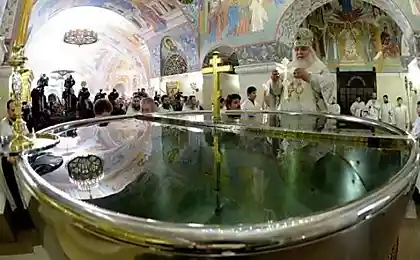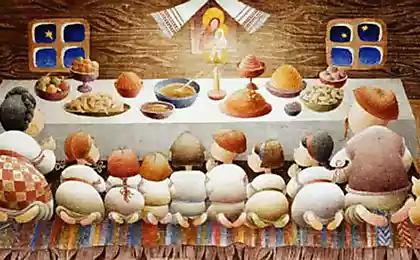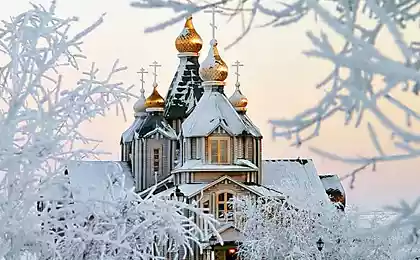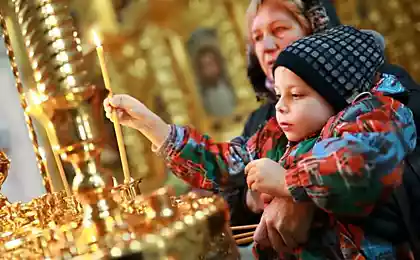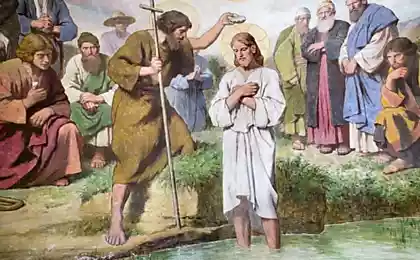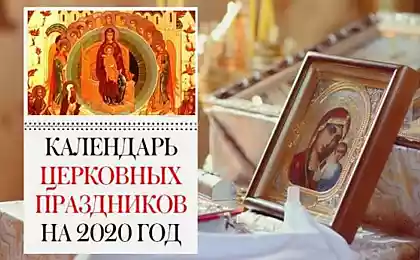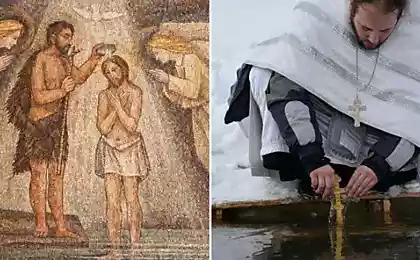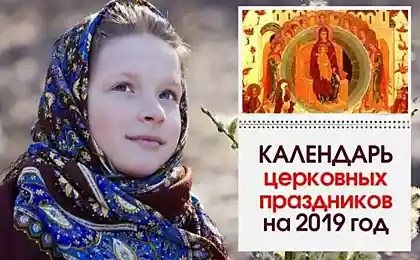221
What to do on the second Christmas Eve
The winter holidays are coming to an end. According to tradition, this period ends on January 19 with a great holiday. By God's baptism. On the eve of Baptism, Orthodox believers celebrate the Evening – the second Holy Evening, or Eve Eve. There are many signs and traditions associated with this day.
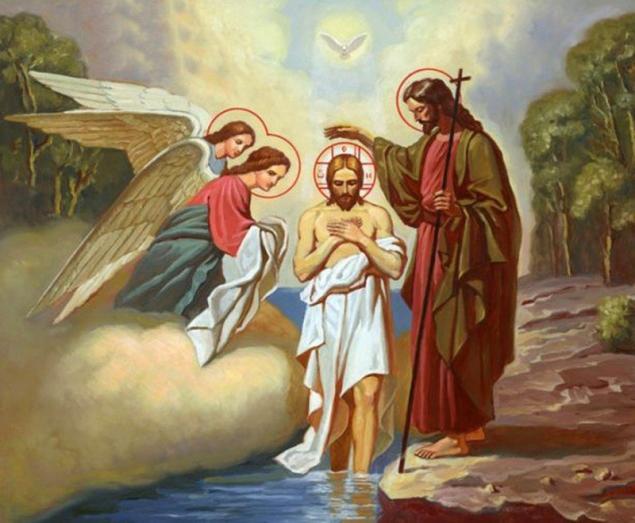
Today's edition. "Site" He will tell you what to do on the eve of the feast of the Baptism of the Lord and what dishes should be on the table on this day.
Eve – 2019 For all believers, Epiphany Eve is one of the most important days of the year. It is believed to have great power and has a significant impact on the next year of a person’s life. Therefore, our ancestors believed that it should be carried out correctly, adhering to certain traditions.
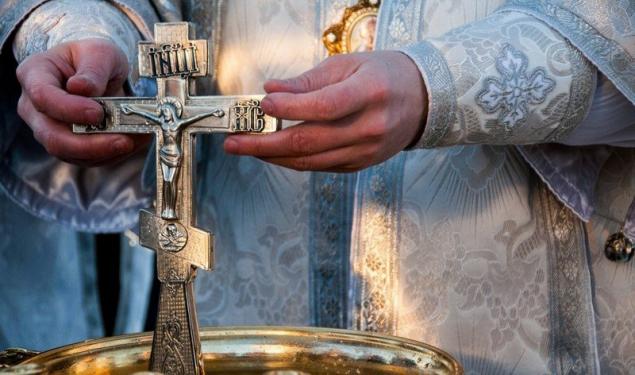
On this day it is customary to adhere to a strict one-day fast. It is believed that until the first star rises, you can not eat anything but drink consecrated water. It was customary to cook and clean houses all day and pray. The day should be spent in humility, calmly. In the evening, if possible, go to church and consecrate the water.
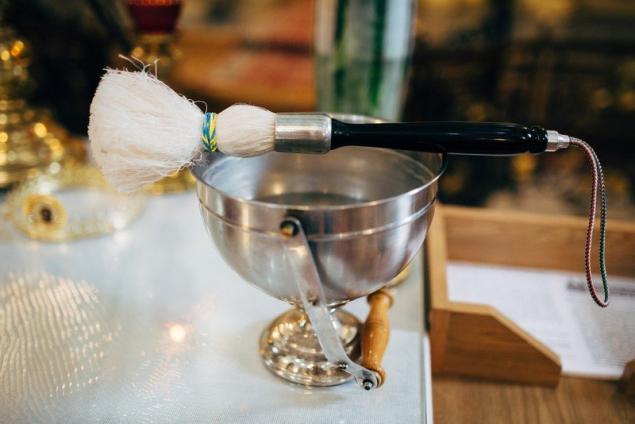
DepositPhotos
Most of the traditions and rituals of this day are associated with water. On the holiday, it is forbidden to speak bad about water and defame it with any words. After consecration, water should sprinkle the whole house, paying special attention to the corners. This will help protect the family from adversity. If you can not go to church, you can get water from any source: on this day all the water is considered holy.
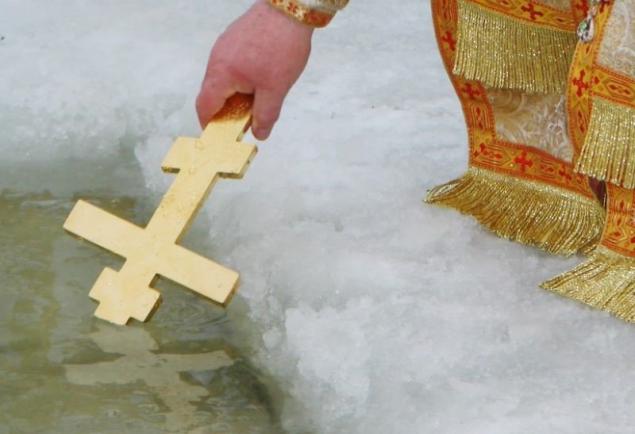
It is on Christmas Eve that you need to manage all your homework, because you can’t do anything the next day. Special attention should be paid to cleaning, because you can not meet a great holiday in a dirty house. Therefore, the housewives tried to conduct a thorough cleaning in the morning early so that later they could prepare dinner.

Dinner on this day is special. The Eve of Baptism is also called the Hungry Kutya, and it is believed that you must set the table and have dinner with the whole family. There should be only lean dishes on the table. It is believed that there must be an odd number of dishes on the table, such as 7 or 9. This rule varies from region to region.
Each family has its own traditions, but there are dishes that in any case should be on the festive table on this day. Let's find out which ones.
After dinner, food was traditionally not removed from the table. It was left for dead relatives who, according to legend, came to the house at night. In fact, it is a tribute to the departed loved ones.
Eve Eve Eve is a special day to spend with loved ones and family. Each family has its own traditions, but some remain unchanged – go to church, consecrate water and have dinner together. Have a good holiday!
This holiday is rich in traditions and rituals. For example, we told you about what you absolutely cannot do on the great feast of the Baptism of the Lord.
We also wrote about the life-giving power of Epiphany water and told why believers consider it healing.
Do not forget to share the article with friends and family, let everyone know about the traditions of this bright holiday!

Today's edition. "Site" He will tell you what to do on the eve of the feast of the Baptism of the Lord and what dishes should be on the table on this day.
Eve – 2019 For all believers, Epiphany Eve is one of the most important days of the year. It is believed to have great power and has a significant impact on the next year of a person’s life. Therefore, our ancestors believed that it should be carried out correctly, adhering to certain traditions.

On this day it is customary to adhere to a strict one-day fast. It is believed that until the first star rises, you can not eat anything but drink consecrated water. It was customary to cook and clean houses all day and pray. The day should be spent in humility, calmly. In the evening, if possible, go to church and consecrate the water.

DepositPhotos
Most of the traditions and rituals of this day are associated with water. On the holiday, it is forbidden to speak bad about water and defame it with any words. After consecration, water should sprinkle the whole house, paying special attention to the corners. This will help protect the family from adversity. If you can not go to church, you can get water from any source: on this day all the water is considered holy.

It is on Christmas Eve that you need to manage all your homework, because you can’t do anything the next day. Special attention should be paid to cleaning, because you can not meet a great holiday in a dirty house. Therefore, the housewives tried to conduct a thorough cleaning in the morning early so that later they could prepare dinner.

Dinner on this day is special. The Eve of Baptism is also called the Hungry Kutya, and it is believed that you must set the table and have dinner with the whole family. There should be only lean dishes on the table. It is believed that there must be an odd number of dishes on the table, such as 7 or 9. This rule varies from region to region.
Each family has its own traditions, but there are dishes that in any case should be on the festive table on this day. Let's find out which ones.
- koutia
This is a must-have dish that should be on the table this evening. On the second Christmas Eve, it is customary to prepare lean kutya, adding except walnuts, honey, poppy and raisins. Just like the first Christmas Eve. Only if before Christmas dinner begins with a spoonful of kutya, then before Epiphany - with a glass of holy water. After that, you can take over the couch.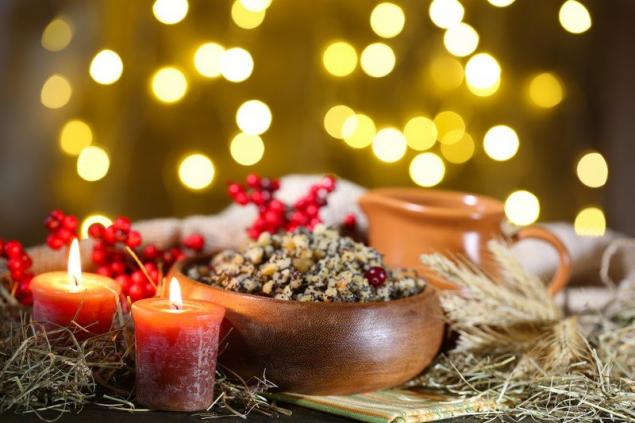
DepositPhotos - Jamies.
Another traditional dish that is cooked just like before Christmas. Fillings can be chosen for your taste: cabbage, potatoes or peas. You can also prepare sweet dumplings with cherries or other berries.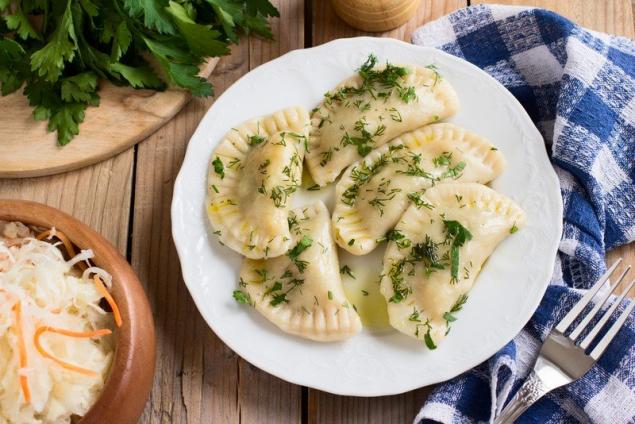
DepositPhotos - Fish
There must be fish on the table. Most often, the housewives bake it so as not to fry in oil. A good and satisfying dish for the festive table.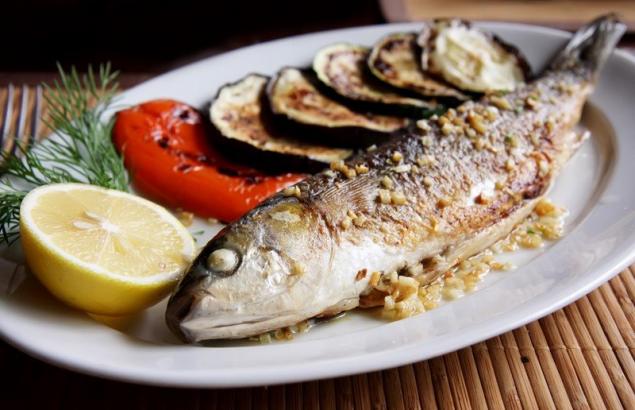
DepositPhotos - Cabbage dishes
Cabbage dishes are also considered traditional for a lean festive table. You can make stewed cabbage with mushrooms or prepare lean blueberries.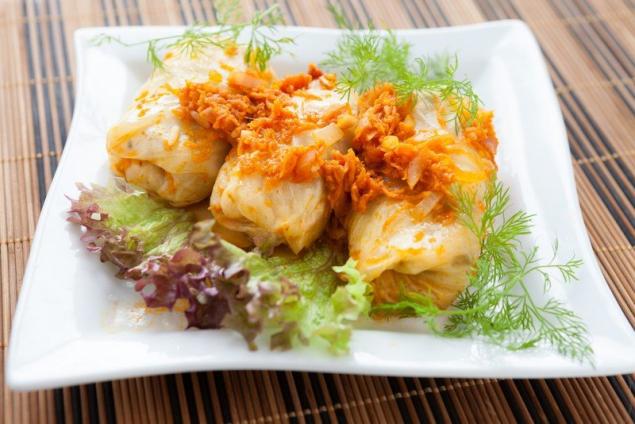
DepositPhotos - Weasel
Uzvar is a traditional drink of the Holy Evening. It is cooked on the basis of dried apples, pears, prunes and dried apricots. Cooking it is very simple: well wash the ingredients, pour water, add a little sugar and bring to a boil. However, remember that uzvar needs to brew for 12 hours, so cook it in advance.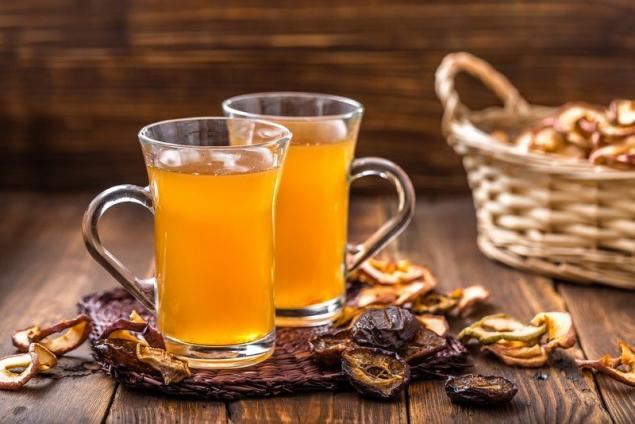
DepositPhotos
After dinner, food was traditionally not removed from the table. It was left for dead relatives who, according to legend, came to the house at night. In fact, it is a tribute to the departed loved ones.
Eve Eve Eve is a special day to spend with loved ones and family. Each family has its own traditions, but some remain unchanged – go to church, consecrate water and have dinner together. Have a good holiday!
This holiday is rich in traditions and rituals. For example, we told you about what you absolutely cannot do on the great feast of the Baptism of the Lord.
We also wrote about the life-giving power of Epiphany water and told why believers consider it healing.
Do not forget to share the article with friends and family, let everyone know about the traditions of this bright holiday!







